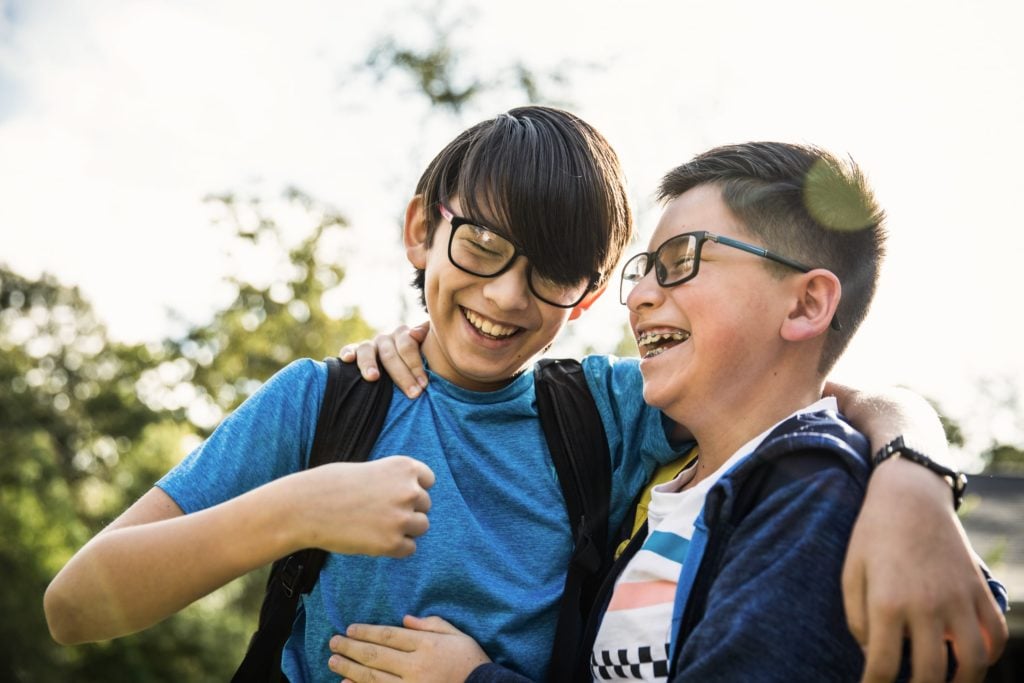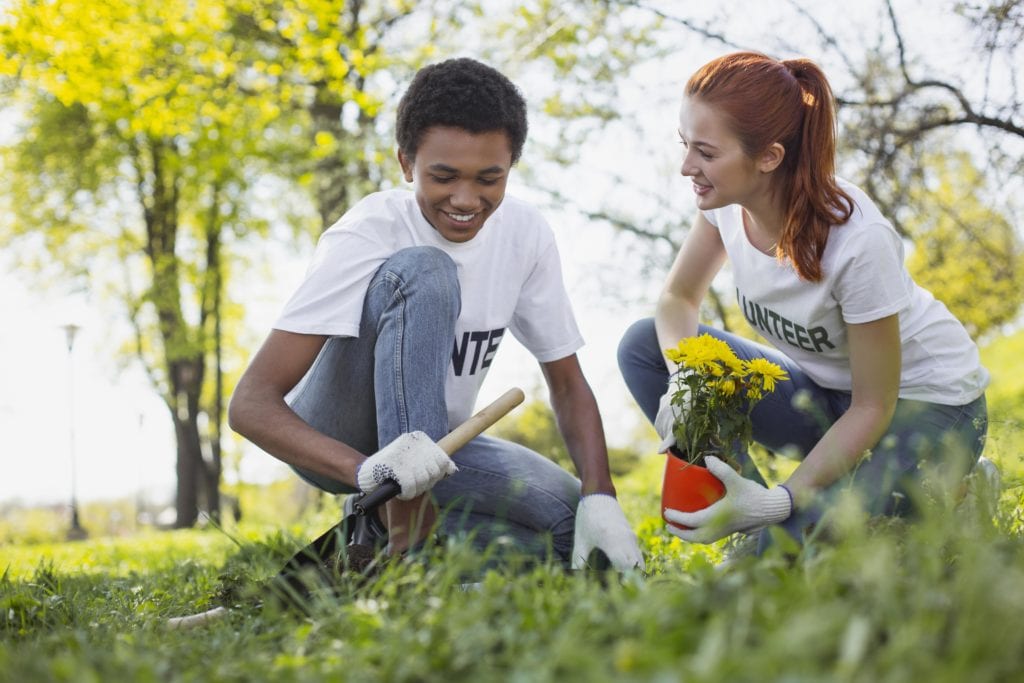Should Gifted Students Skip Summer Break?
by Elizabeth Preston
by Valerie Kirk
One of the persistent myths of virtual school is that students miss out on socialization and don’t have the opportunity to develop the social skills they’ll need to find success after graduation. If students are learning virtually without the in-person classroom, lunchroom, and hallway interactions that most people remember from their own brick-and-mortar school days, will they have the social foundation to navigate complex social situations and the nuanced social dynamics of different peer groups they will encounter in their future interactions?
The answer is a resounding yes!
Children begin learning social skills well before their first day of school. Around the age of two, they learn basic social skills through interactions with their family and others in their family’s inner circle, like sharing and taking turns. As they grow older, they learn how to use their manners and respect personal space. Social development continues as kids learn to follow directions, hold a conversation, and ask for help.
These social skills form the building blocks of a strong social foundation, which will help guide them to success throughout their adolescent years as they make decisions when confronted with increasingly tough social situations, such as peer pressure and conflicts with friends. It’s that strong social foundation that gives them the confidence they need to stay true to themselves, build lasting friendships, and navigate the complex social dynamics of different group environments.
The social dynamics definition is how kids fit in within larger groups of people, whether that be peers, other adults, or family members. It’s important for kids to learn social skills and social cues that will help them navigate the complexity of being part of a group. As kids develop their social skills, they need to also develop confidence in themselves to interact socially as their true, authentic selves, and to work with personalities within various groups that may be different from their own.
Typically, when adults think of socialization for kids, they think about school. Ask 10 different kids what “social” means them, and you will probably get 10 different answers. Every kid views social interactions and their social needs differently. From the extroverted child who gets their energy from being part of a large group of kids to the naturally shy child that feels more comfortable reading a book by themselves, each child has different needs when it comes to socialization that will help them thrive.
As parents, we want to nurture and support our child, helping them become comfortable and confident in their own skin. While we expose them to different opportunities to expand their knowledge (like taking them to the library or science center), we can also guide them toward opportunities where they can learn those important social skills.

Social skills aren’t exclusively learned in school! In fact, sociologists recognize that children and teens learn social skills from five primary sources:
By tapping into the social learning opportunities offered through these sources, you can help encourage your child’s social development as they grow into self-assured, confident adults. If you have a child learning from home and are wondering how to help your child be more social, here are things you can do to help them naturally learn socialization.
The number one place students learn those important social skills is at home with their family. Parents can teach and reinforce socially acceptable behaviors that will help their child succeed in the world.
Family dinner is a perfect opportunity to teach the social skills that are the building blocks for later social interactions. At family dinner, kids learn the art of conversation—when to listen, how to take turns talking, how to ask appropriate questions, and how to tell a story about their day. As an added bonus, studies show that students who regularly eat dinner with their families experience positive, long-term benefits in both their physical and mental health.
Did we say that family is the number one place students learn social skills? This includes extended family. Family reunions, birthdays and other milestone celebrations, as well as other family events help children learn those important social skills that will help them throughout their lives. Cousins are the best playmates, even with an age gap, because they typically share the same value system. Cousins can also be a child’s first true friend, helping them understand the meaning of the word and how to reciprocate friendship. Kids also interact with people at various ages and stages in their lives at family gatherings, learning how to answer questions when asked and speak to a variety of different people, which builds their confidence and helps them develop more complex social skills that will help them throughout their lives.
Online school students learn important social skills as part of their online learning journey, participating in live, virtual classes with classmates and interacting one-on-one with teachers. As independent learners, they know how to ask for help before it’s too late, which is an important social skill and one that also builds confidence in knowing how and when to use their voice. They participate in group work and learn how to navigate group social dynamics, building an understanding of how to be part of a group and developing leadership skills. With in-person field trips, students learn how to create lasting friendships as they jump from communicating online to communicating in person.

While parents who grew up before social media, smartphones, and online chat tools might equate too much screen time with a lack of socialization, in today’s world, these tools provide a way for students to connect with each other. A group of elementary or middle school students can play an online game in a safe, private chat room, just as though they were sitting in the same physical room. Playing video games online with friends helps them make and keep connections while building their conversation and friendship skills. It also helps them practice conflict-resolution skills—video games come with some intense, competitive challenges that kids need to work through together!
Talk to anyone who spends time volunteering, and they will tell you how rewarding—and life-changing—the experience is, giving them a sense of meaning, purpose, and belonging. It also helps with socialization and can expand the social circles for students learning online. Volunteering teaches interaction, teamwork, collaboration, leadership, and problem-solving—all social skills that build their understanding of social dynamics and that will help them navigate wherever they go after graduation with confidence. Check out this list of ways to get your student involved in volunteer work.
Extracurricular clubs and activities are a great way for students to socialize with others who share the same interests. In addition to building social skills, the group nature of these activities helps them understand and adapt to the social dynamics of working in a group or as part of a team, which will help them in the working world. They learn how to handle disagreements, how to compromise, how to lead, and how to work together to achieve common goals. They also learn how to meet new people and deepen relationships. With the flexibility of online school, many people find their students have more opportunities to participate in clubs and activities and develop that strong social foundation.
Online learning gives students the confidence they need to succeed—both in academics and socially. Read this article to learn more about socialization, including how online school can help students with social anxiety.
Want to learn more about online school? Explore how it works and see how Connections Academy® can help your student.
by Elizabeth Preston
by Elizabeth Preston
by Elizabeth Preston
